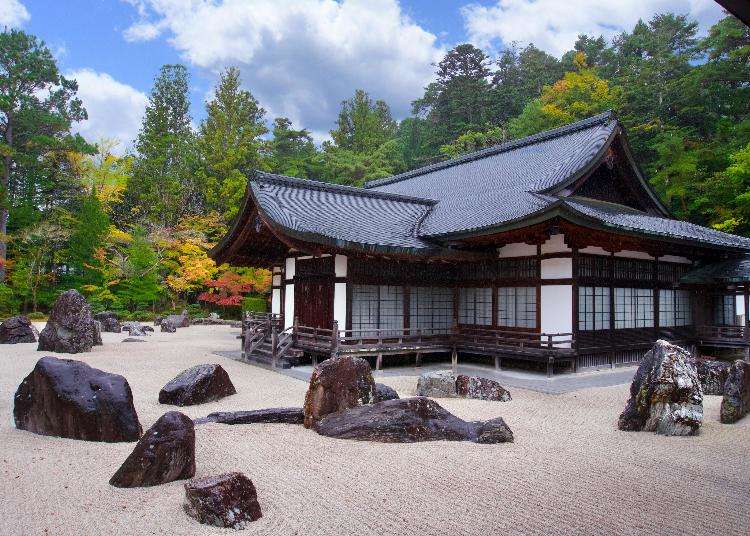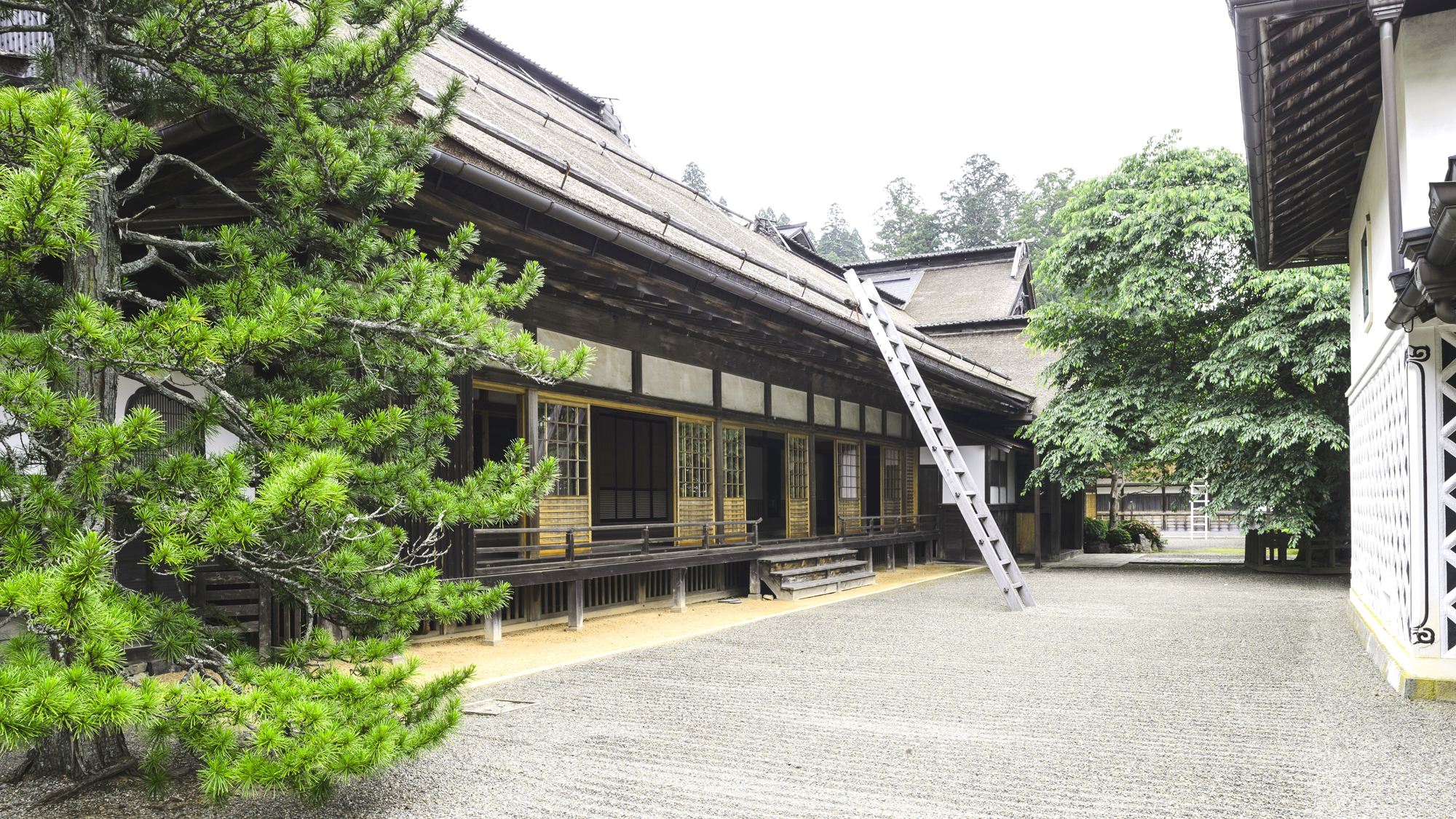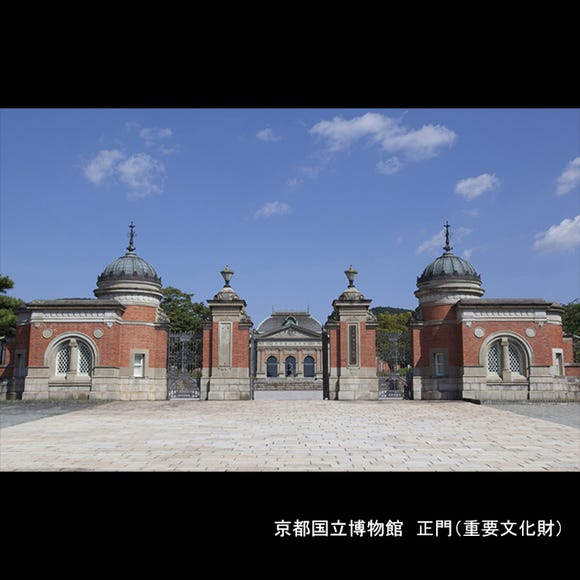
Koyasan Itinerary: Two Days in Japan’s Spiritual Center
- Written by: Cassandra Lord
Koyasan is a beautiful area known for its central place in Shingon Buddhism. The area is full of spiritual sites, nature, and plenty of places to relax. Here, we’ll look at a one-night itinerary to make the most of your time in Koyasan.
(This page may contain promotions)
Why Visit Koyasan?

Koyasan is one of Japan’s most important spiritual centers, as it is where Kobo Daishi, an important religious figure, brought Shingon Buddhism to Japan and set up the sect’s headquarters. Kobo Daishi (also known as Kukai), believed that Buddhism and Shintoism shouldn’t be separated, and you can see evidence of this in various places, such as Shinto shrine buildings on Buddhist temple grounds, for example, which is now a rare sight in Japan.
After Kobo Daishi set up the headquarters, a temple town developed on the mountaintop. Many pilgrims visit Koyasan after completing the Shikoku 88 Temple Pilgrimage to pay their respects to Kukai, expressing gratitude for his protection during their journey. While Koyasan is not part of the pilgrimage route, its deep spiritual connection makes it a meaningful destination for those who have completed the trail.
- There is no actual mountain called "Mount Koya" (Koyasan). Instead, the name comes from a tradition of giving temples "mountain names" (sango), even if they aren’t on mountains. Koyasan refers to an area that was once one big temple, with smaller temples using names ending in "-in," like Daien-in or Sanmai-in, instead of "-ji."

One of the highlights of visiting Koyasan is the opportunity to stay at a temple among the Buddhist monks. The experience is like no other accommodation, as you can meditate with the monks, taste Shojin Ryori cuisine, and spend a night in an atmospheric temple. If you want to see a detailed itinerary about our recent temple stay, take a look at the link below.
Koyasan is most beautiful in spring and autumn. Summer can be hot, but with longer days to experience the mountain’s natural sights. Winter can be pretty in the snow, but due to the ancient nature of the temples and trails, can be a little dangerous to traverse by car or foot without preparation.
Getting to Koyasan

As Koyasan is a mountainous region away from the Shinkansen route, it is not the easiest to access from Tokyo. It is recommended to visit Koyasan when you are visiting Osaka, Kyoto, or a nearby prefecture.
- From Osaka’s central Nankai Namba Station, it takes around 1.5-2 hours to reach Koyasan Station by the Nankai Line. There is a limited number of express trains that go straight to Gokurakubashi Station, where you can then change to get the Koyasan Cable Car to Koyasan Station. If there are no direct trains, you will need to change once at Hashimoto Station. See complete directions here.
- From Kyoto Station, the easiest option is the highway bus (operating only from April to November), which goes directly from Kyoto Station to a few stops in Koyasan town like Okunoin Mae, and takes around 160 minutes. Otherwise, you will need to take the train to Osaka and follow the directions above. See complete directions here.
Once in Koyasan, there are three bus routes to get around, though much of the town is walkable. See the schedule here.
There are plenty of tours and activities that you can book before your visit, some of which include travel from Osaka.
-
 World Heritage Kumano Kodo Hiking Tour
World Heritage Kumano Kodo Hiking Tour
Details & Bookings ▶
(Image & activity provider: Klook) -
 Mt Koya Walking Tour from Osaka
Mt Koya Walking Tour from Osaka
Details & Bookings ▶
(Image & activity provider: Klook) -
 Mt. Koya Sacred 4hr Private Tour with Government Licensed Guide
Mt. Koya Sacred 4hr Private Tour with Government Licensed Guide
Details & Bookings ▶
(Image & activity provider: Viator) -
 Kyoto to Mt. Koya One-Day Walking Tour
Kyoto to Mt. Koya One-Day Walking Tour
Details & Bookings ▶
(Image & activity provider: Viator)
Koyasan Itinerary Overview
Here we’ll take you through a one-night itinerary of Koyasan.
Day one covers Daimon Gate, Kongobu-ji temple, Danjo Garan Pagoda complex, and a temple stay, while day two covers morning temple activities, Okunoin, and town sightseeing.
Day 1: Koyasan Area and Temple Stay

9 AM: Koyasan Station and Daimon
・Arrive at Koyasan Station at 9:12 AM. Take the 9:17 AM bus to Daimon, arrive 9:27 AM.
Daimon is the main spiritual gate to Mt. Koya. While it was once a Shinto torii gate, the gate that we see now is more of a Buddhist temple gate style, and has two Vadrajhara statues on either side. To the left of the gate is a trail entrance that can take you to Okunoin.
10:30 AM: Danjo Garan

The Danjo Garan Pagoda Complex is Koyasan’s most iconic location. This is where Kobo Daishi first broke soil to create the temple buildings. An important symbol of Shingon Buddhism is the Mandalas of the Two Realms: the Diamond World Mandala and the Womb World Mandala. The Danjo Garan is said to express the second, and the golden Buddha in the central Konpon Daito pagoda is a 3D representation of that mandala. The Danjo Garan complex has a number of different buildings to explore, from the Konpon Daito to the spinning Rokkaku Kyozo. Aim to spend around an hour or more here to take in the scenery and learn about its history.
-

-
Address
152, Kouyasan, Kouya-cho, Ito-gun, Wakayama, 648-0211
View Map -
Nearest Station
Koyasan Station (Nankai Koyasan Cable)
13 minutes by bus
- Phone Number 0736-56-3215
-
Address
152, Kouyasan, Kouya-cho, Ito-gun, Wakayama, 648-0211
11:30 AM: Kongobu-ji

・10-minute walk to Kongobu-ji
Kongobu-ji, the head temple of Koyasan, was formed by the merger of two temples in 1869 and has operated under its current name since then. One of the original temples, now part of Kongobu-ji, was built in 1593 by Toyotomi Hideyoshi.
The temple is surprisingly spacious with a lot of rooms and artwork to explore, including more modern pieces added within the past few years. The central garden, called Banryu-tei, has large rocks that were transported from Kobo Daishi’s birthplace of Shikoku. They are placed to resemble two large dragons protecting the temple.
-

-
Address
132, Kouyasan, Kouya-cho, Ito-gun, Wakayama, 648-0294
View Map -
Nearest Station
Koyasan Station (Nankai Koyasan Cable)
12 minutes by bus
- Phone Number 0736-56-2011
-
Address
132, Kouyasan, Kouya-cho, Ito-gun, Wakayama, 648-0294
12:30 PM: Goma Tofu lunch at Kadohama Gomatofu

・12-minute walk to Kadohama Gomatofu
Koyasan is famous for its production of goma tofu, a type of “tofu” made with sesame seeds instead of soybeans. The sesame seeds are said to have been an important source of protein for the monks, and peeling each seed would be a part of their rituals. Kado Hama is a well-known goma tofu brand, and at their restaurant they offer two types of goma tofu kaiseki (varied small dishes) that look like the two Buddhist mandalas.
-
Kadohama Gomatofu角濱ごまとうふ総本舗 小田原店
- Address 729 Koyasan, Koya, Ito District, Wakayama 648-0211
・Website: https://www.gomatohu.com/
1:30 PM: Explore the town
Here is a good time to explore the town’s streets and shops, and take in the atmosphere. If you find yourself wanting a break, the Japanese Spice Shop, Hirano Seishoan, is a great place to stop for a drink or unique dessert topped with sansho spice.
3 PM: Check in to your temple stay

After a day of traveling and walking, you can check into your shukubo (temple accommodation). It is a good idea to check in a little earlier than the evening’s activities so that you can explore the temple and have a break. On our visit, we stayed at Rengejo-in.
5 PM: Evening meditation

During our stay at Rengejo-in, the evening meditation began at 5 PM, with a bell to notify us five minutes before. While the time and format may differ slightly at each temple, on our visit we had a 40-minute mindful breathing meditation, with a talk from the head priest before and after.
6 PM: Shojin ryori dinner

After meditation, you will be guided to a dinner of vegetarian shojin ryori. This is an elaborate kaiseki dinner with various small dishes made for guests. After, you can visit the baths and return to your room to rest, as you will be up bright and early the next morning.
Day 2: Morning Temple Activities and Sightseeing
6 AM: Morning ceremony
At Rengejo-in, the morning begins with a ceremony where the monks perform a sutra reading in honor of the deceased. During this session, the monks chant rhythmically the entire way through.
7 AM: Shojin ryori breakfast
While not as elaborate as dinner, breakfast is also a version of vegetarian shojin ryori, with refills of warm rice and tea.
9 AM: Nyonindo

・5-minute walk from Rengejo-in
Historically, women were not permitted to enter the sacred land of Koyasan. This hall is one of the last points before entry to the grounds where women were permitted to enter, and served as a place of worship for them as close to Kobo Daishi as possible. It is a small area, but worth a visit to understand this part of history, and you can see the path that connects to Daimon.
-

-
Address
709, Kouyasan, Kouya-cho, Ito-gun, Wakayama, 648-0211
View Map -
Nearest Station
Koyasan Station (Nankai Koyasan Cable)
5 minutes by bus
- Phone Number 0736-56-2011
-
Address
709, Kouyasan, Kouya-cho, Ito-gun, Wakayama, 648-0211
10:30 AM: Okunoin

・15-minute walk to Senjuin-bashi bus stop, 12-minute bus ride to Okunoin entrance
Okunoin is an important spot as it is where Kobo Daishi is entombed, making it the closest worshippers can be to him. He is not said to have died, but instead rests in eternal meditation. The grounds of Okunoin are large, making up a cemetery with over 200,000 tombstones amid a towering cedar tree forest. The Gobyo-no-hashi bridge separates the rest of the cemetery from the sacred site of Kobo Daishi’s mausoleum, where visitors bow before crossing. Twice a day, at 6 AM and 10:30 AM, monks bring food in a procession as an offering to Kobo Daishi, then return it to share among themselves. The grounds have a mystical feel to them, and are large enough to explore and still feel you haven’t seen it all.
-

-
Address
Koyasan Okunoin, Koya-cho, Ito-gun, Wakayama Prefecture, 648-0211
View Map -
Nearest Station
Koyasan Station (Nankai Koyasan Cable)
25 minutes by bus
- Phone Number 0736-56-2002
-
Address
Koyasan Okunoin, Koya-cho, Ito-gun, Wakayama Prefecture, 648-0211
12 PM: Lunch at Café Shizuku

・7-minute bus ride from Okunoin-mae to Kongobuji-mae
While not traditional cuisine, Café Shizuku is a relaxing spot to recharge with their signature vegetable curry, inspired by vegetarian Shojin Ryori. You’ll find the restaurant by looking for the statue of Koyasan’s mascot, Koya Kun. There are even cute desserts in the shape of him, known as Koya Kun Monaka and Mochi Ice, where you get a pastry shell to stuff with mochi, ice cream, and red bean paste. This is also a good spot for souvenirs.
-
Café Shizuku高野山 café雫
- Address 360 Banchi, Koyasan, Koya, Ito District, Wakayama 648-0211
1 PM: Gomataki fire ceremony

・16-minute walk or 5-minute bus ride
While some temple stays offer a daily gomataki ceremony, if you aren’t able to see one there, you can visit Shojoshin-in at 1 PM to see the ceremony for free. This ceremony is unique to Shingon Buddhism, with the idea of purifying your mind, body, and spirit. At Shojoshin-in, you are invited to write down your wishes on a wooden plate (for 1,000 yen), which you can then throw into the fire, with the idea to achieve a simple life. The ceremony occurs between 1-2 PM each day.
-
 Shojoshin-in Temple清浄心院
Shojoshin-in Temple清浄心院- Address 566 Koyasan, Koya-cho, Ito-gun, Wakayama View Map
- Original source: Rakuten Travel
Vacancy search, reservation
-
from 27,170JPY 1room, 2adults
Check with our partner site as the latest rates, rate details, and guest room requirements may vary.
2:30 PM: Tenpu Terrace and final exploring

・5-minute walk to Tenpu Terrace
Finally, head to Tenpu Terrace to explore their souvenirs or get a last snack or drink for the road. Then do any final exploring.
-
Tenpu Terrace天風てらす
- Address 53-3 Koyasan, Koya, Ito District, Wakayama 648-0211
・Website: https://www.ichinohashi.co.jp/terrace.html
4 PM: Depart from Koyasan
・30-minute bus ride from Tamagawa-dori to Koyasan Station
There are certain trains that go directly from Koyasan Station to Namba Station, including the 4:10 PM train (subject to change). Make sure to get a bus that arrives early enough to leave without worry, and head back through the misty mountain tracks.
Koyasan Souvenirs and Cafes
We have mentioned a few places to get souvenirs and snacks in the itinerary, but here are some descriptions of those spots and their highlights.
Japanese Spice Shop - Hirano Seishoan

A shop selling handmade sansho spices and oils with various flavorings. You can use them on a dish to give it some extra zing, and they are sold in small containers that are easy to take home. Or, try their vanilla ice cream with sansho sprinkled on top!
-
Hirano Seishoan山椒専門店 平野清椒庵
- Address 733 Koyasan, Koya, Ito District, Wakayama 648-0211
・Website: https://hirano-seishoan.com/koyasan/
Café Shizuku

A shop and restaurant inside the Koyasan Digital Museum. Buy coffee, Koya Kun goods, sweets and snacks to take home, or stop by for a Koya Kun themed ice cream or lunch.
Tenpu Terrace

A large, modern souvenir shop and café with a wide variety of Koyasan goods. Browse everything from kimono jackets to cedar soaps, and all sorts of seasonal snacks. Head upstairs for a wide selection of gluten-free, vegetarian, or non-vegetarian meals and desserts. (We recommend the Tenpu Terrace Sesame Latte!)
Tips for Visiting Koyasan

Finally, here are some tips to make the most out of your trip to Koyasan!
- Make sure to check the weather before you visit and pack accordingly – it can be colder on Koyasan than in the surrounding cities.
- Make sure to plan accordingly from your start point, as it can take around five hours to visit Koyasan from Tokyo, for example.
- If you plan on staying in a temple, make sure to let them know of any allergies or dietary restrictions well in advance.
- There are no clothing restrictions for meditation or temple stays, but it is best to wear casual and comfortable clothes. Make sure to bring comfortable walking shoes.
- Some buildings are lit up at night, and are worth a visit, but check curfew times and procedures of your temple stay.
- Please note that if you are staying in a temple, you will not be allowed to wheel your luggage across the floor. If you have heavy luggage that you cannot carry, leave it in a locker at your departure city, or use a courier service like Yamato Transport to send it to your next destination.
-

-
Address
600 Koyasan, Koyacho, Wakayama Prefecture, 647-0006
View Map -
Nearest Station
Koyasan Station (Nankai Koyasan Cable)
- Phone Number 0736-56-2616
-
Address
600 Koyasan, Koyacho, Wakayama Prefecture, 647-0006
Helpful Links
Cassandra Lord is a British journalist specialising in food, travel, and culture, and has been in Japan for five years after studying Japanese at Edinburgh University for four. With a year of experience as co-editor for LIVE JAPAN, Cassandra has since transitioned to freelance writing, contributing to a variety of platforms including The Japan Times and Tokyo Weekender. During her time in Japan she has visited 25 prefectures, with a goal to eventually visit all 47. She also manages her own YouTube channel, "Cassandra Lord", which is dedicated to all things related to Japanese culinary culture. She also works as a translator and photographer.
- Area
- Category
*Prices and options mentioned are subject to change.
*Unless stated otherwise, all prices include tax.
Popular Tours & Activitiess
Recommended places for you
-

ISHIDAYA Hanare
Yakiniku
Kobe, Sannomiya, Kitano
-

Jukuseiniku-to Namamottsuarera Nikubaru Italian Nikutaria Sannomiya
Izakaya
Kobe, Sannomiya, Kitano
-

Kanzenkoshitsuyakinikutabehodai Gyugyu Paradise Sannomiya
Yakiniku
Kobe, Sannomiya, Kitano
-
Goods

Yoshida Gennojo-Roho Kyoto Buddhist Altars
Gift Shops
Nijo Castle, Kyoto Imperial Palace
-

Kyoto National Museum
History Museums
Kyoto Station, To-ji Temple
-

Kambei Sannomiyahonten
Yakiniku
Kobe, Sannomiya, Kitano
-

Smart Buyer's Guide to Luxury Brand Resale in Osaka (Shinsaibashi & Namba)
-
Ad

Earthquake in Kyoto? Typhoon? What To Do If Disaster Strikes During Your Stay
-
Ad

4 Recommended Restaurants Open After 9 PM Near JR Nara and Kintetsu Nara Station
by: Shingo Teraoka
-
Ad

Kumano Kodo's Nakahechi Route: A World Heritage Journey Starting from Kii-Tanabe Station
-

February Events in Kansai: Fun Festivals, Food, and Things to Do in Kyoto & Osaka
-

One of Western Japan's Largest Character Hubs Is Coming to Osaka Station in 2026
by: Guest Contributor
-

Can’t Get Where You’re Going in Kyoto? What do “Agaru” and “Sagaru” Mean? Kyoto’s Unique Address System!
-

First Time in Nara: Where To Go And What To Do in Japan's Famous City
by: WESTPLAN
-

Visiting Tsutenkaku Tower: Osaka's Retro Icon in the Heart of Shinsekai
by: Guest Contributor
-

Sightseeing Highlights: Experience the Appeal of Kyoto Geisha Culture
-

Ninenzaka and Sannenzaka: Walking Guide to Kyoto's Best Old Streets
by: WESTPLAN
-

Kyoto Gion Walking Guide: Top 10 Must-See Areas for First-Time Visitors
- #best gourmet Osaka
- #things to do Osaka
- #what to do in kyoto
- #what to bring to japan
- #best gourmet Kyoto
- #new years in Osaka
- #what to buy in nanba
- #Visiting Osaka
- #onsen tattoo friendly arima
- #daiso
- #Visiting Kyoto
- #best japanese soft drinks
- #japanese fashion culture
- #japanese convenience store snacks
- #japanese nail trends





















